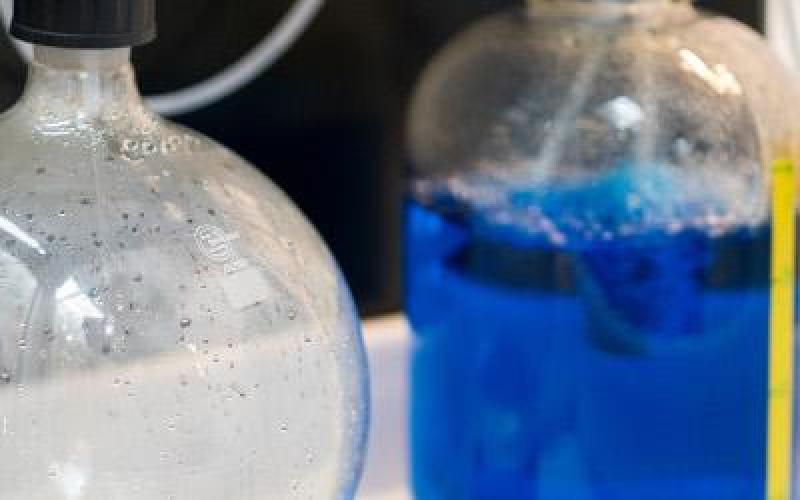You are here
- Home
- International conference to review progress of sustainability research
International conference to review progress of sustainability research

Sustainability research with a particular emphasis on energy and environmental fields topped the bill at a conference hosted by The Open University (OU) in July 2023. The Sustainable Processes Linked for an Integrated Circular Economy (SPLICE) 2023 conference connected research, industry, and policy experts from international institutions. SPLICE is an OU-led project, which has been supported by funding under the Sustainability stream of the OU’s Societal Challenges themes. SPLICE 2023 focused on research excellence across a range of topics:
- Waste Management
- Environmental systems
- Wastewater treatment
- Sustainable polymers
Addressing world challenges
The SPLICE 2023 conference reflected on progress on these topics and their alignment with the Sustainable Development Goals (SDGs).
“SPLICE 2023 aligns well with many of our research priorities here at the OU,” said Dr Tarek Rashwan, one of the OU academic leads for SPLICE 2023. “We are developing new technologies for converting waste to energy and for water treatment. This research addresses the harsh reality that fledging waste management systems worldwide cannot keep up with our waste volumes and over one billion people cannot access safe drinking water. As a result, millions die every year due to preventable causes.”
The importance of multidisciplinary sustainability research
OU Vice-Chancellor, Professor Tim Blackman, opened the conference and emphasised the importance of supporting early career researchers engaged in multidisciplinary sustainability research. He also highlighted that multidisciplinary gatherings like SPLICE 2023 are critical for supporting societal change through science-informed policy. SPLICE 2023 was attended by students and early/mid/senior academics from the OU, alongside others from eight UK universities, five international universities, and six international companies.
A series of multidisciplinary talks explored the various aspects of wastewater treatment, decarbonisation, environmental contamination, energy, and material science innovations by research academics. For example:
- Dr Samson Patole from Tata steel provided insight into how the heavily polluting steel industry is pursuing innovations to reduce its carbon output.
- Dr Fernanda Veloso from BRGM: The French Geological Survey outlined carbon capture and storage sites in development across various European countries.
- Mr Jiahao Wang from The University of Western Ontario presented modelling innovations in better understanding and predicting the use of smouldering to remediate hydrocarbon contaminated brownfield sites.
Conclusions and next steps
As a result of the networking at SPLICE 2023, many cutting-edge ideas have been shared, and new ones have been formed. These new ideas are now being developed into emerging research projects, alongside established and new SPLICE 2023 connections, which aim to amplify OU research and positive impact widely.
Apply research to pressing challenges
The OU’s Open Societal Challenges Programme aims to tackle some of the most important societal challenges of our time through impact-driven research. The Programme’s focus on the themes of Tackling Inequalities, Living Well and Sustainability aligns well with the OU’s mission to be open to people, places, methods and ideas. The Programme’s aim is to apply excellent research by OU academics to some of the most pressing challenges facing people across the UK and worldwide to transform lives and drive societal change.
This story was originally posted on our Research website.
Related articles
- Reducing your carbon footprint this Festive Season 28th October 2024
- Accelerating Ambition and Impact: EAUC Conference 2024 30th July 2024
- Driving change: Imagining a different transport future 23rd July 2024
- Donating items to MK Food Bank 21st July 2024
- Butterflies as indicators of our impacts on nature - Climate Perspectives 9th July 2024